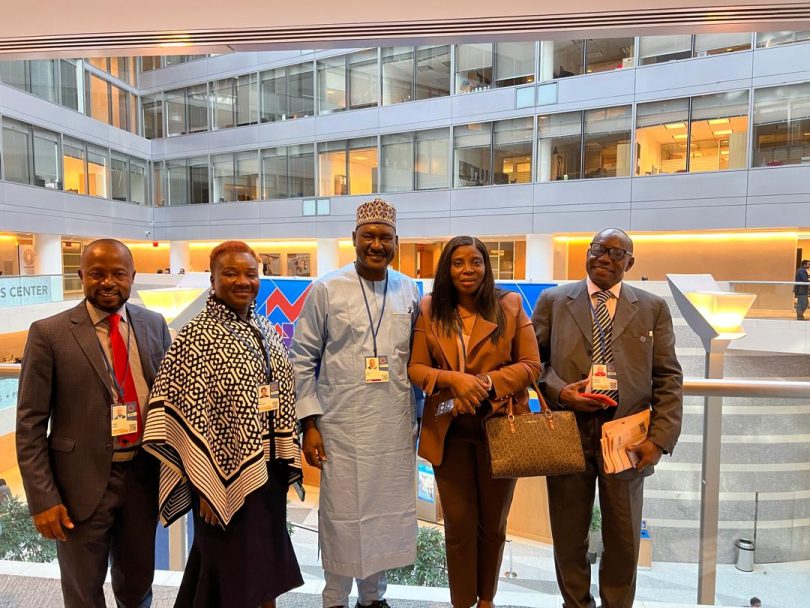At the 2025 Annual Meetings of the IMF and World Bank in Washington, Nigerian civil society icon Auwal Musa Rafsanjani delivered a blunt message to world financial leaders stressing that Africa is in crisis, and the global financial system is rigged against the continent.
By Chimezie Godfrey
At the 2025 Annual Meetings of the IMF and World Bank in Washington, Nigerian civil society icon Auwal Musa Rafsanjani delivered a blunt message to world financial leaders stressing that Africa is in crisis, and the global financial system is rigged against the continent.
Rafsanjani, who leads both the Civil Society Legislative Advocacy Centre (CISLAC) and Transparency International Nigeria, said Africa’s debt burden has reached alarming levels — with Nigeria as a prime example of how reckless borrowing and weak governance can push a nation to the brink.
“Most of the loans we take are not for development but for consumption,” he declared in a televised interview on The Policy with Leah. “There is little or no accountability around them, and lawmakers themselves often lack access to critical debt information.”
He described the current debt wave as a “vicious trap,” aligning with the G24’s warning that many developing nations are caught in a cycle of dependency sustained by corruption and skewed global financial structures. Rafsanjani called for sweeping debt relief measures and the reform of IMF and World Bank governance systems, which he said remain dominated by powerful nations.
“The global financial order must reflect fairness and inclusiveness,” he said, stressing that Africa’s voice must count in decisions that shape its economic future.
Turning his attention homeward, Rafsanjani did not mince words. He described Nigeria’s economy as “oil-dependent, poorly managed, and dangerously fragile.” He slammed the removal of subsidies on healthcare, education, and transportation, arguing that such policies worsen hardship for the poor.
“It is ironic that while developed nations subsidize vital sectors, our leaders withdraw social safety nets from the poorest under the guise of reform,” he said.
On education and innovation, Rafsanjani warned that Nigeria risks losing its place in the digital economy due to chronic underfunding. “Our universities are underfunded, research is dead, Professors can barely survive, and laboratories are non-functional,” he lamented.
He urged the government to deploy Artificial Intelligence (AI) tools to improve transparency and fiscal accountability. “AI can revolutionize governance by detecting leakages early, automating audits, and improving financial tracking,” he argued, adding that Nigeria must invest in digital infrastructure and human capital to keep pace globally.
Rafsanjani also challenged state governors to utilize FAAC allocations responsibly and grow their internal revenues. “The fuel subsidy savings belong to the people,” he said. “Governors must not convert them into political slush funds.”
Condemning Nigeria’s high cost of governance, he mocked the extravagance of public officials. “You cannot expect international support while living in wasteful luxury,” he said. “In developed countries, ministers fly economy class; in Nigeria, one official moves with 20 cars. It’s absurd.”
In his closing remarks, Rafsanjani issued a stern warning to African leaders: “Without comprehensive reforms and genuine accountability, Africa will remain trapped in poverty, indebtedness, and underdevelopment — despite its abundant resources.”
His intervention adds to the rising chorus of African civil society voices demanding a more just and transparent global economic system as the world’s financial elites deliberate on the continent’s future.

